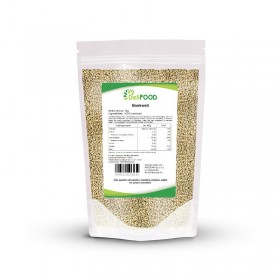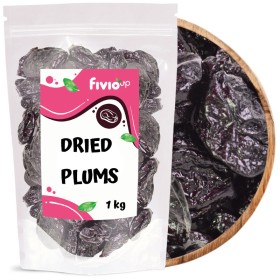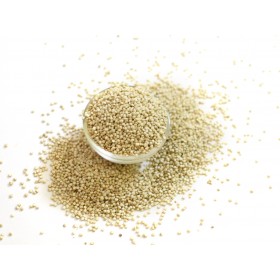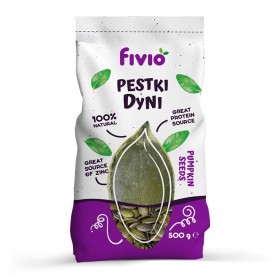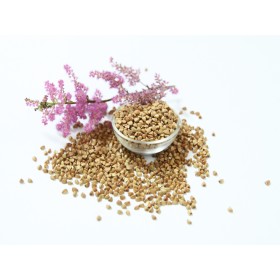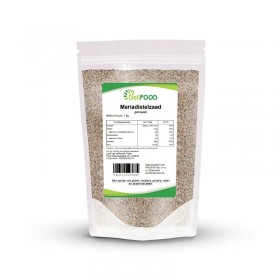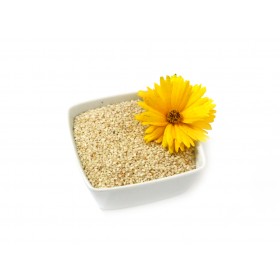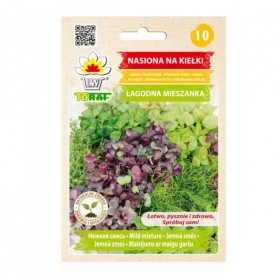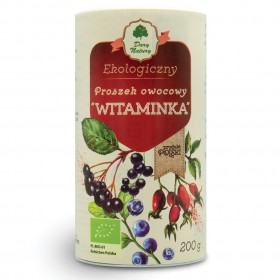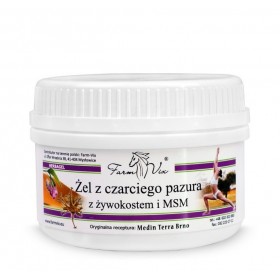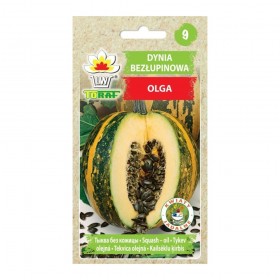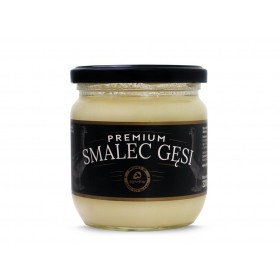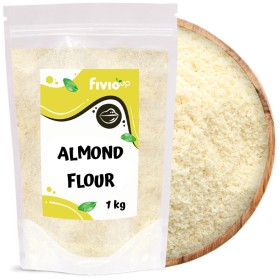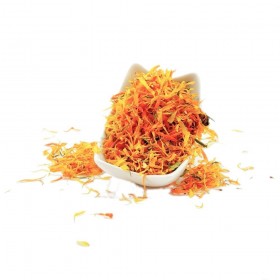Millet flakes
With the growing awareness of the principles of varied eating, our interest in different types of grains has increased. At this point, millet deserves special attention. Millet flakes are made from it, which many consider an essential part of a tasty breakfast. Interestingly, millet flakes are not only easy to prepare but also contain various nutrients, vitamins, and minerals.
The use of millet flakes in the daily kitchen and more
Millet flakes are widely used in our cuisine. They not only form the basis of a breakfast but also an unusual ingredient in breadcrumbs for meat, vegetables, or fish. Interestingly, they are also perfect for making grain cookies. Additionally, millet flakes can be the basis for the preparation of flour. This product is also often used in the preparation of care masks and body scrubs.
Caloric value of millet
Millet flakes are a good source of energy and especially carbohydrates that contribute to our daily energy level. In 100 g of this product, we find about 370 calories. Millet also contains protein (about 12 g / 100 g). In addition, millet flakes are a source of B vitamins, magnesium, and calcium. Therefore, they could hold an important place in the diet of people with specific dietary needs.
Where do millet flakes come from and how are they made?
Millet flakes are made directly from peeled and crushed millet grains or ready-made millet. Common millet is an annual plant that belongs to the grass family. Under natural conditions, it occurs in North America as well as in the subtropics. However, many of its crops can also be found in our country. Millet is characterized by a semi-lodging or ascending stem. The leaves are thread-like and even. The flowers, on the other hand, are collected in an inflorescence that forms a hanging panicle.
Although millet leaves relatively recently appeared on European tables, it turns out that crushed millet grains have been consumed by humans for nearly 5,000 years BC. The first references to the use of this grain come from China. On the other hand, millet flakes themselves were only popularized in the 19th century by the famous Swiss doctor Maximillian Bircher-Benner. He was the founder of the popular mix of flakes and dried fruit, nowadays known as muesli.
The making of millet flakes is not easy. High temperatures are often used in this process. Moreover, millet grains are thoroughly cleaned and dried before reaching our tables. Despite this complicated procedure, ground millet grains still contain nutrients such as carbohydrates (including starch), proteins, and essential amino acids. Furthermore, millet flakes are rich in B vitamins and minerals such as zinc, phosphorus, magnesium, potassium, calcium, and iron. Interestingly, these flakes also contain bran where creatine can be found. An important piece of information is that millet flakes are gluten-free.
Millet flakes are easy to digest and quite delicate in flavor. They feature a fine texture and a yellowish color. Unlike oat flakes, they are pleasantly crispy. They are also universal in terms of use in daily cooking and body care.
Consumption tips for millet flakes
In most cases, consuming millet flakes is safe within a balanced diet. However, due to their carbohydrate content, frequent consumption may be less suitable for people with specific dietary needs such as diabetics or those with insulin resistance. It is good to know that some people may experience reactions to grains or rare allergies with new foods.
- Ingredients
- millet flakes
- Type
- Careals, beans and groats
- Application
- Cooking
- Warning
- Dit product wordt verpakt en/of bewaard in een omgeving waar ook producten met noten, pinda, mosterd, selderij, gluten, sesam, soja en sulfiet worden verwerkt. Ondanks alle voorzorgen is het mogelijk dat dit product sporen van deze allergenen bevat.
- Country of origin
- Poland
Order before 15:00, expect it to be delivered tomorrow*
Shipping costs overview table
| Order amount | from €50,- | between €40 and €49,99 | between €30 and €39,99 | between €10 and €29,99 | under €10,- |
|---|---|---|---|---|---|
| Shipping costs NL | €0,- | €0,- | €2,99 | €4,95 | €6,19 |
| Shipping costs BE | €0,- | €1,49 | €3,99 | €6,49 | €7,99 |
Free pick up in Geesbrug (Drenthe):
In the third step at the checkout, choose pickup, this choice will automatically remove the shipping costs from your shopping cart. You can pick up your order for free from us in Geesbrug. This is possible on any working day (Monday to Friday) from 9:00 AM to 4:00 PM. The pick-up address is Energiestraat 6 in Geesbrug.






